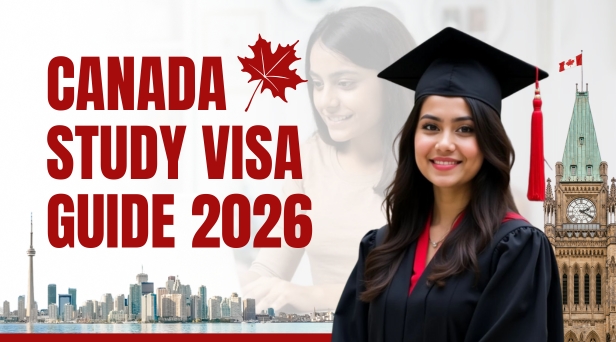Are you passionate about shaping the young minds of tomorrow? Then studying Early Childhood Education in Canada may be the perfect pathway for you. This complete guide will equip you with all the information you need to pursue a rewarding career in this field, from program options and admission requirements to career prospects and salary expectations. Get ready to embark on an exciting journey toward making a difference in the lives of children and their families!
Introduction to Early Childhood Education in Canada
Early Childhood Education (ECE) in Canada is a field that has been gaining popularity in recent years. This is because of the growing recognition of the importance of early childhood development and the role of education in shaping the future of children. ECE programs and courses in Canada are designed to equip students with the knowledge and skills to work with young children, from birth to age eight.
Studying ECE in Canada offers a range of benefits, including access to high-quality education, exposure to diverse cultures, and opportunities to gain practical experience through internships and placements. To pursue a career in ECE in Canada, students must meet certain requirements, such as having a high school diploma or equivalent and passing a criminal record check.
While the cost of studying ECE in Canada can vary depending on the institution and program, there are various financing options available, including scholarships, grants, and loans. Completing an ECE program or course in Canada opens up a range of job opportunities, including working in daycare centers, preschools, and early intervention programs. Investing in yourself by studying ECE in Canada is a wise decision that can lead to a fulfilling and rewarding career.
Requirements for Studying Early Childhood Education in Canada
If you are considering studying Early Childhood Education in Canada, it is important to know the requirements for admission into a program or course. Typically, applicants will need a high school diploma or equivalent, with a minimum grade point average (GPA) of 2.0 or higher. Some institutions may also require specific courses such as English, math, or science. In addition, many programs require applicants to have experience working with children, either through volunteer work or employment.
It is important to note that some programs may have additional requirements, such as a criminal record check or immunization records. Overall, it is important to research the specific requirements of the program or institution you are interested in to ensure that you meet all the necessary criteria for admission.
The cost of studying Early Childhood Education in Canada
Studying Early Childhood Education in Canada can be a rewarding experience, but it comes with a cost. The tuition fees for ECE programs and courses vary depending on the institution, location, and program duration. On average, the cost of studying ECE in Canada ranges from $5,000 to $20,000 per year. However, this should not discourage you from pursuing your dream career in ECE. There are various financing options available, such as scholarships, grants, and loans, that can help you cover the cost of your education.
Investing in yourself and your education is the best decision you can make, as it opens doors to numerous job opportunities in the field of Early Childhood Education. So, don't let the cost of studying ECE in Canada hold you back from pursuing your passion for working with young children. With determination and the right funding, you can achieve your goals and make a positive impact on the lives of children and families.
Programs offered by Canadian universities and colleges
Canadian universities and colleges offer a wide range of programs and courses in Early Childhood Education (ECE). Some of the popular programs include the Bachelor of Education in Early Childhood Education, Diploma in Early Childhood Education, and Certificate in Early Childhood Education. These programs are designed to provide students with the knowledge and skills needed to work with young children in a variety of settings.
|
Program |
Duration |
|
Advanced Diploma in Early Childhood Education |
3 years |
|
UG Diploma in Early Childhood Education |
2 years |
|
Master's in Early Childhood Education |
2 years |
|
Postgraduate Accelerated Diploma in Early Childhood Education |
1 year |
Courses offered in these programs cover topics such as child development, curriculum planning, assessment and evaluation, and working with families. Students also have the opportunity to gain practical experience through field placements and internships. With the increasing demand for qualified ECE professionals in Canada, completing an ECE program or course can lead to a rewarding career in the field.
Job opportunities after completing an ECE program or course in Canada
In Canada, those with a degree in early childhood education have a variety of professional options at their disposal, such as employment in childcare facilities, preschools, kindergartens, or nonprofit organizations. Canada is experiencing a rise in the need for early childhood educators, opening up prospects for specialization and professional progression.
To engage young learners, early childhood educators include play and hands-on activities in their lesson plans. They do this by employing technology such as computers, games, music, artwork, movies, and books. Creativity, communication, problem-solving, social skills, and cooperation are encouraged via activities including building with blocks, clay, puzzles, gardening, playing an instrument, and food preparation.
Following the course, you may choose from the below-mentioned professions:
- Early Childhood Educator: A person who works with and cares for young children.
- Early Childhood Assistant: Works closely with early childhood educators to organize and administer children's programs.
- Special Needs Educator: Someone who cares for and educates children who have special needs.
- Kindergarten teachers: They are critical in bringing children to formal learning and fostering their intellectual growth.
Investing in yourself is the best decision you can make
In conclusion, investing in yourself is the best decision you can make, especially when it comes to pursuing a career in Early Childhood Education in Canada. By obtaining the necessary qualifications and skills through studying ECE, you will not only enhance your personal and professional growth but also contribute to shaping the future of our society. The benefits of studying ECE in Canada are vast, including job security, competitive salaries, and opportunities for career advancement. While the cost of studying may seem daunting, there are various financial aid options available to help you achieve your goals. Remember, the investment you make in yourself today will pay off in the long run, both personally and professionally. So, leap and invest in yourself by pursuing a career in Early Childhood Education in Canada. You won't regret it!












